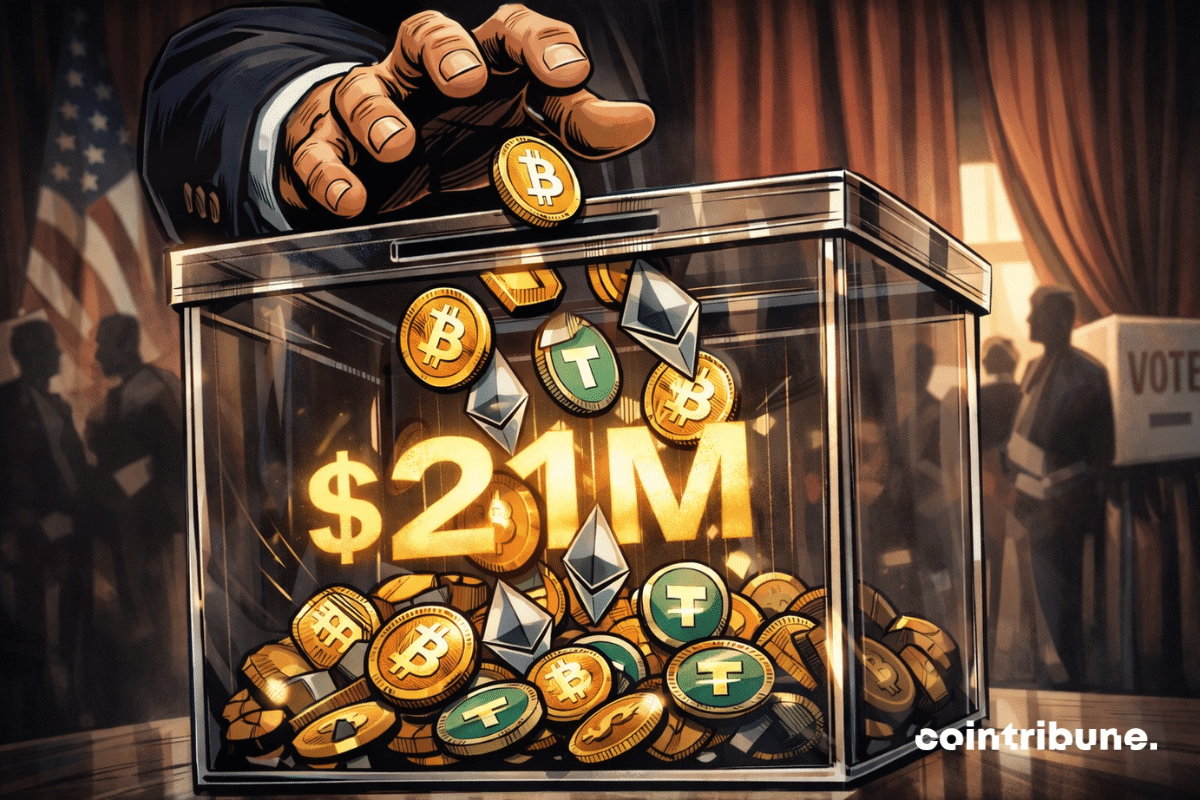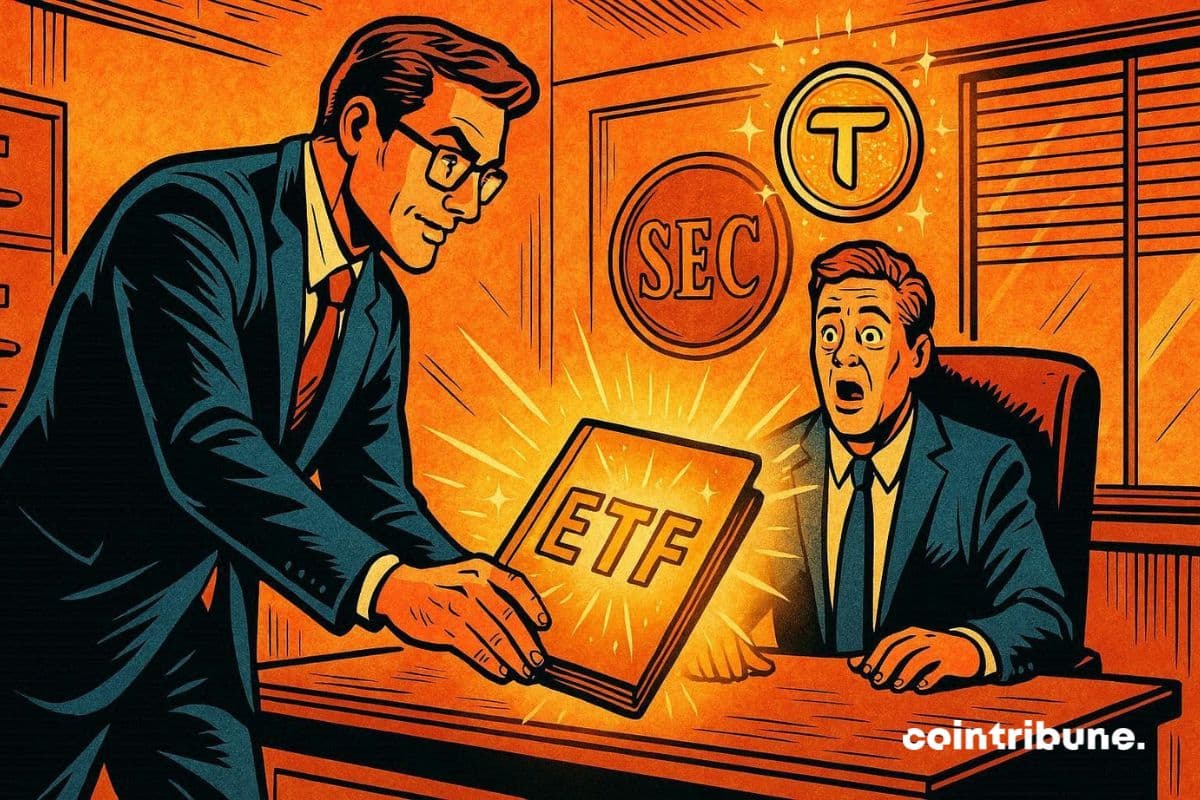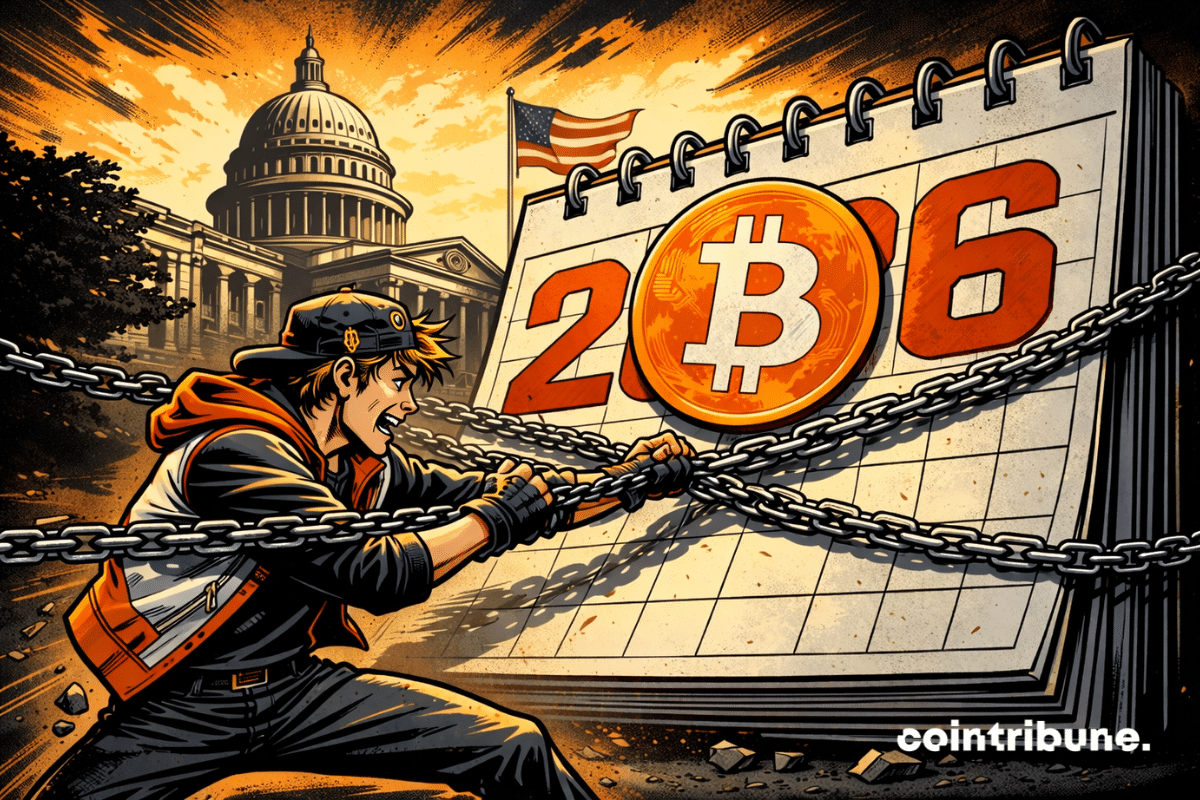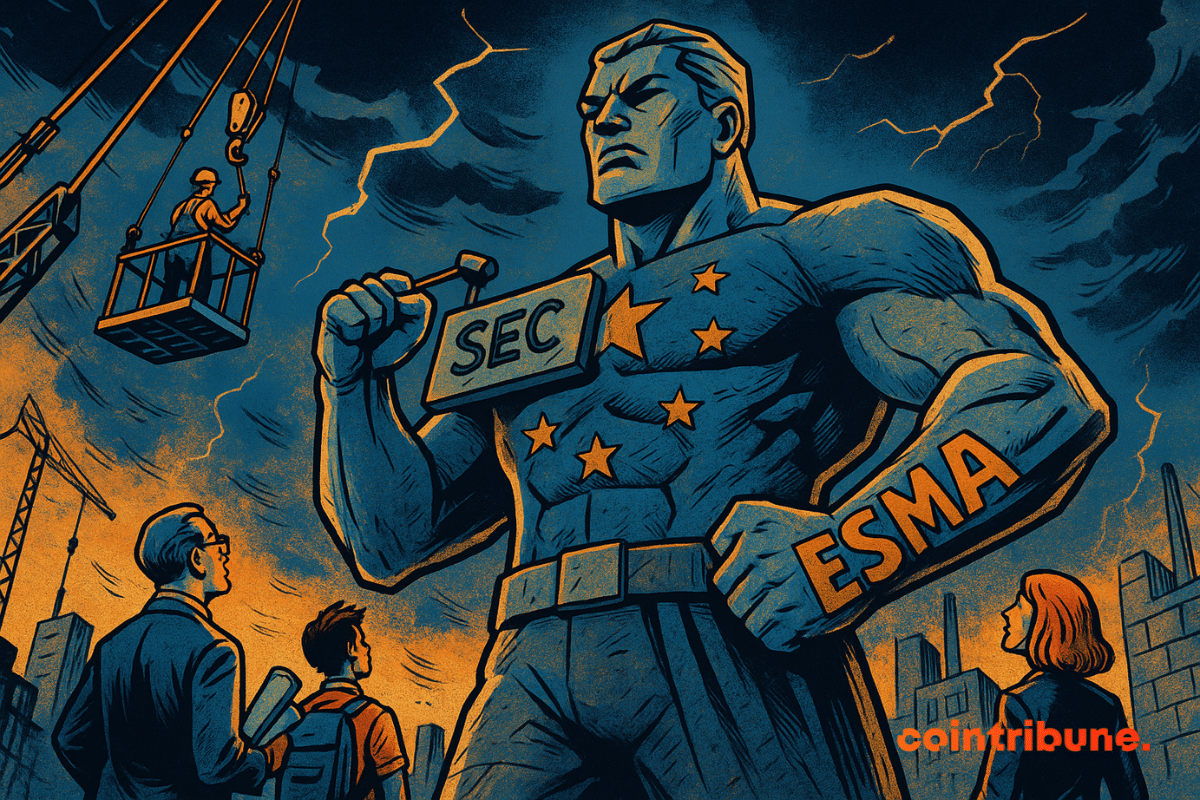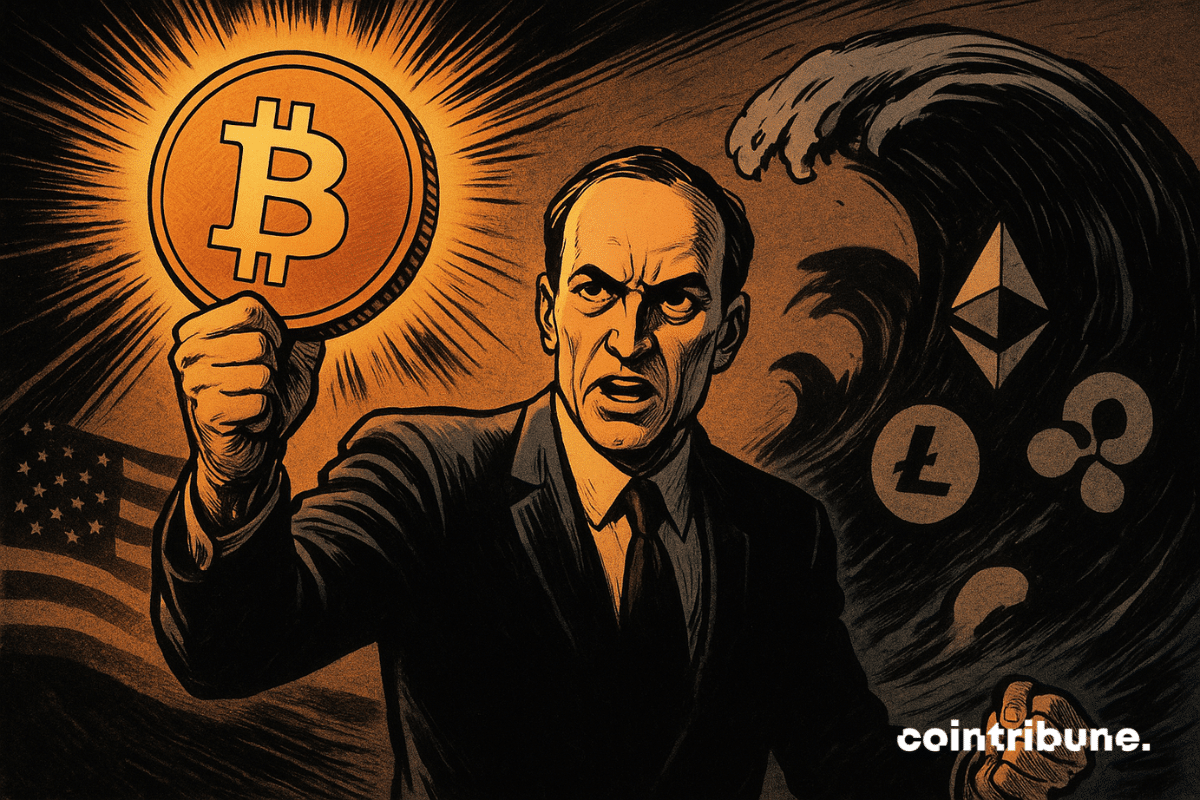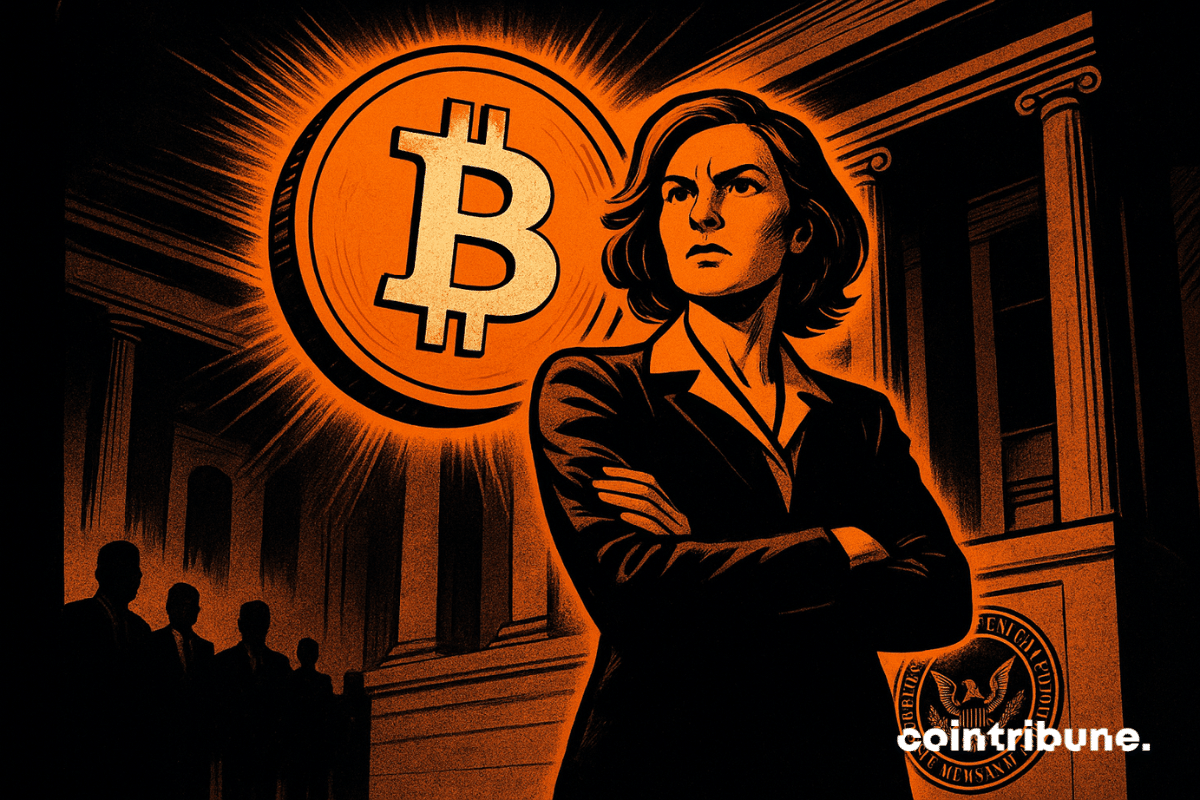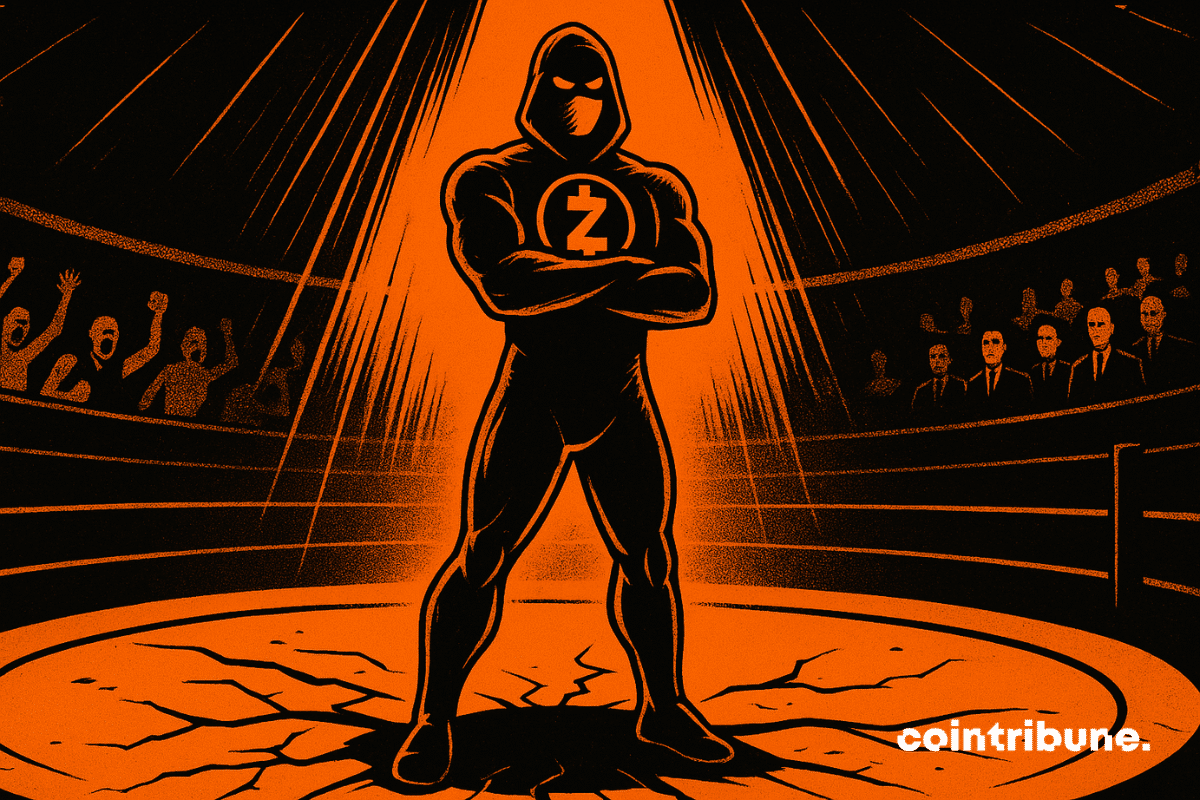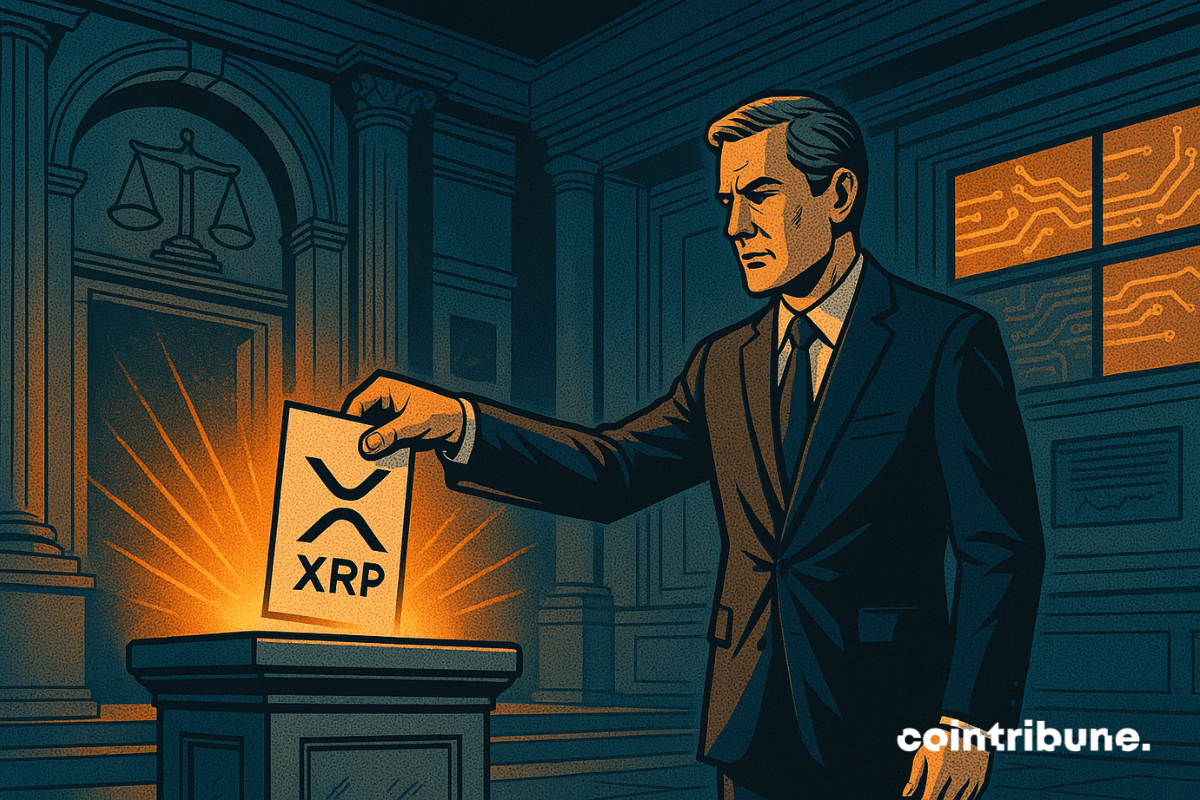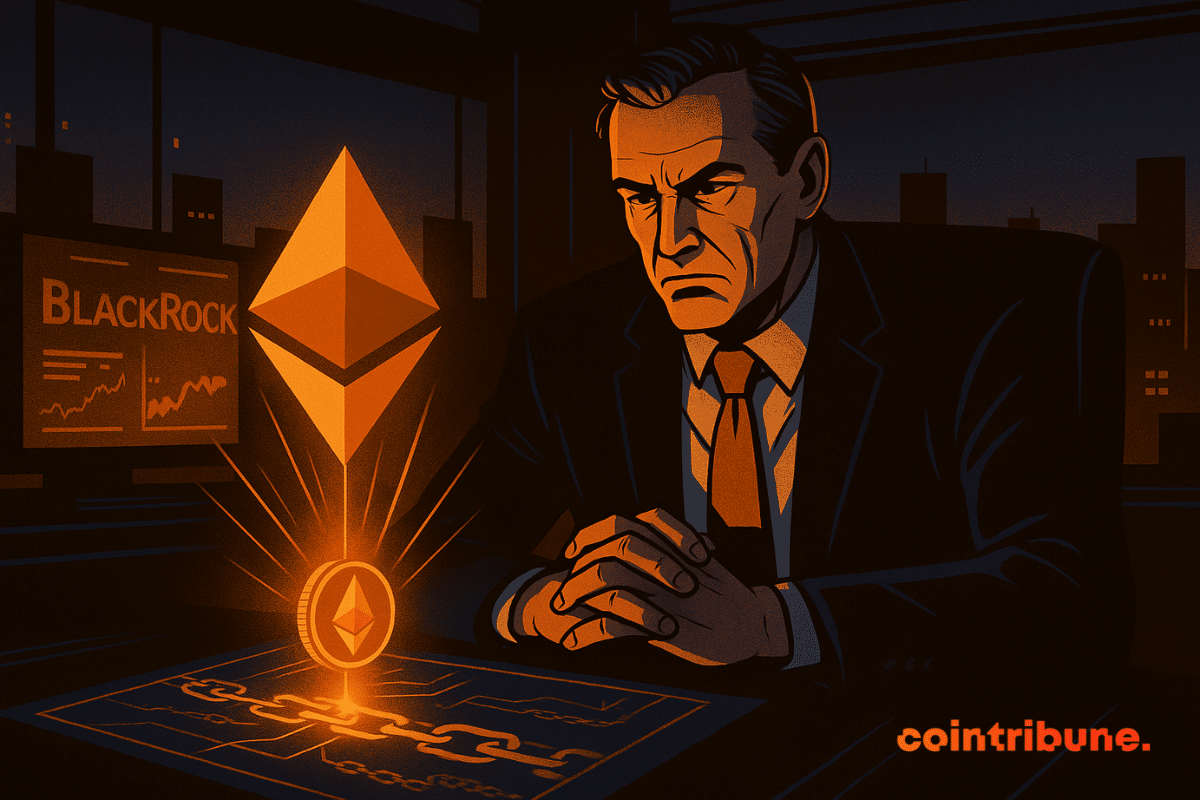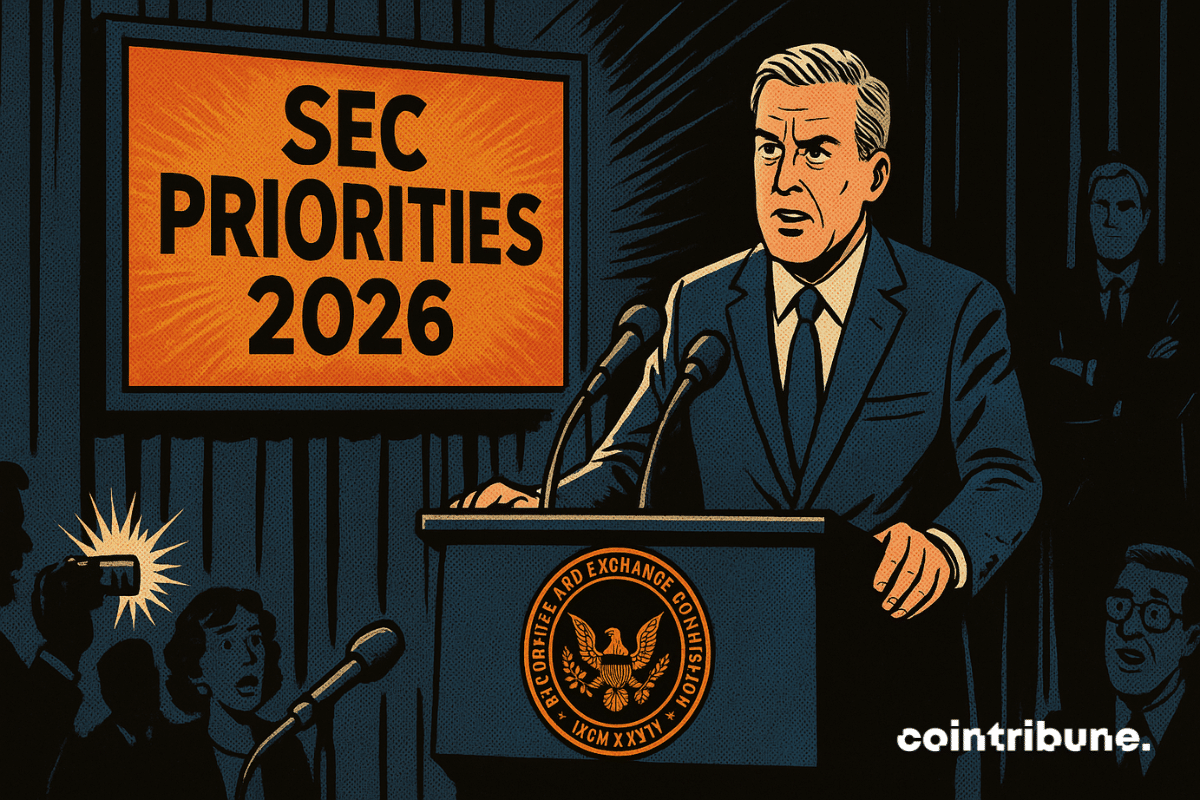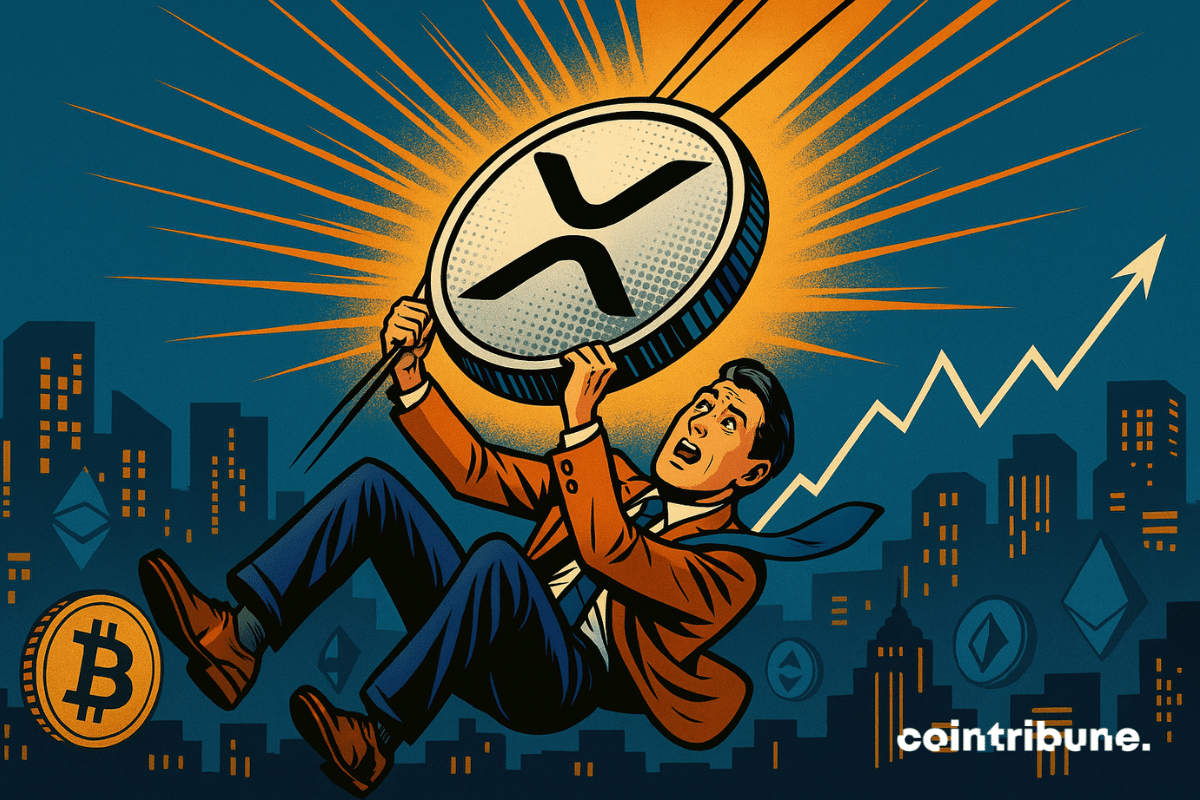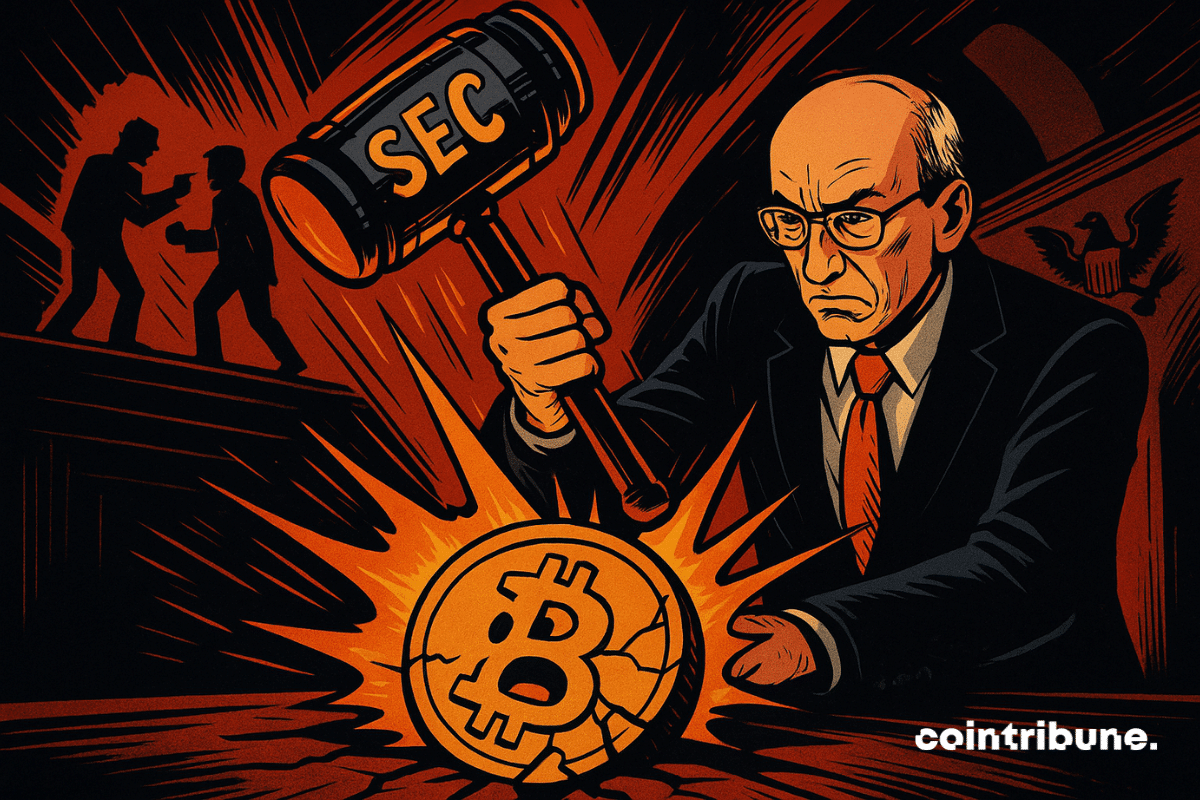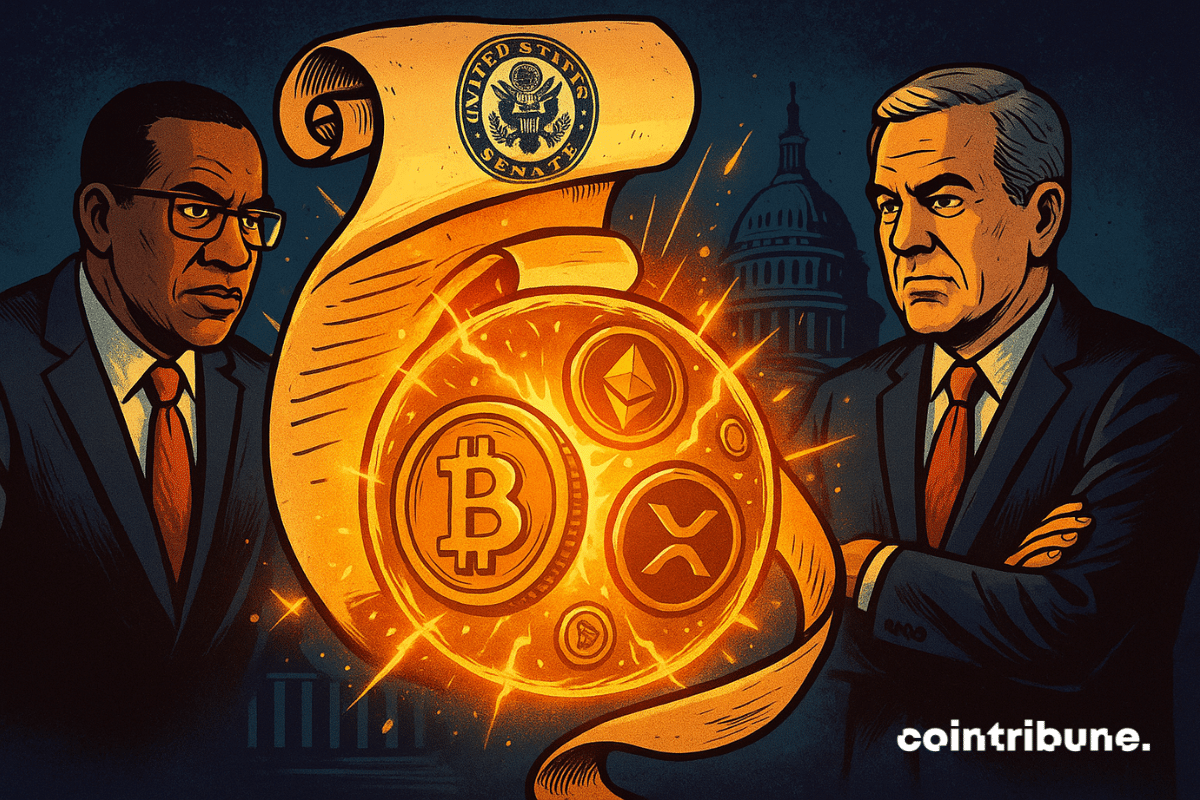Venture capital and institutional investors are moving back into digital asset companies at the start of 2026, even as crypto markets remain under strain. Industry data shows around $1.4 billion committed through venture rounds, ecosystem funds, and public listings. Activity spans on-chain finance, market infrastructure, and consumer-facing platforms, pointing to renewed confidence in select areas of the sector.
Securities and Exchange Commission (SEC)
U.S. regulators have taken a clearer position on how securities laws apply to blockchain-based financial products. New guidance from the Securities and Exchange Commission (SEC) addresses growing interest in tokenized securities and how they fit within existing legal frameworks. Market participants have pushed for clarity as tokenization expands beyond experimental use into real-world applications. The latest statement aims to reduce uncertainty without altering core regulatory expectations.
In a context of persistent tensions between the crypto ecosystem and U.S. regulation, the SEC has just taken an unexpected step. The agency has definitively dropped its civil action against Gemini Trust, marking the end of the Gemini Earn case. This decision, legally qualified as "dismissal with prejudice," raises questions about the regulator's strategic shift regarding crypto yield products, and what this might imply for future relations between platforms and authorities.
Caroline Ellison released from prison. FTX returns to the heart of debates in the crypto ecosystem. All the details in this article!
The US Commodity Futures Trading Commission (CFTC) is strengthening its leadership as it prepares for a potentially expanded role in overseeing digital asset markets. Chair Michael Selig has appointed two senior advisers, signaling the agency’s focus on crypto regulation as lawmakers consider legislation that could grant the CFTC broader authority over the sector.
U.S. lawmakers have put a major crypto market structure bill on hold after strong pushback from Coinbase. Fresh criticism from the exchange’s chief executive raised doubts about whether the proposal could move forward without changes. As a result, Senate Banking Committee members delayed a planned markup while reassessing industry and regulatory concerns tied to the draft.
The SEC has closed its investigation into the Zcash Foundation without filing charges. Indeed, the investigation, opened in 2023, focused on certain crypto offerings. This decision temporarily eases the regulatory pressure on Zcash, a project often criticized for its use of privacy-preserving transaction technologies. In a context where privacy coins are regularly targeted by authorities, the dropping of the investigation marks a notable turning point.
In Washington, senators want to "clarify" crypto, but Coinbase slams the door. Clarity or control? The CLARITY Act turns regulation into a political battleground.
Crypto magnates to the rescue of Trump: when tokens waltz and senators hesitate, who is really manipulating whom? Has digital democracy found its biggest speculator?
Grayscale has just filed a dossier with the SEC to launch a Bittensor ETF, a first in the United States. This project could revolutionize access to decentralized AI for institutional investors. TAO, the flagship token of Bittensor, is preparing for massive adoption. A historic milestone for crypto and artificial intelligence.
When Trump dreams of a crypto-compatible America, he appoints a former SEC member to the CFTC. Endorsed by Web3 stars, Michael Selig promises rules, not slaps. To be continued...
The SEC has just dropped the hammer: Caroline Ellison, former CEO of Alameda, is banned for 10 years, while Gary Wang and Nishad Singh face 8 years of prohibition. A historic sanction after the fall of FTX.
New Trump splash: two pro-crypto figures take the reins of the CFTC and the FDIC. All the details in this article!
The US Senate Banking Committee has just postponed crucial hearings on crypto market regulation to 2026. This decision comes as the industry was eagerly awaiting clear rules to emerge from legal uncertainty. Why this new delay, and what are the consequences for the sector?
Regulatory pressure on the US crypto sector has eased sharply since President Donald Trump returned to office. Enforcement priorities at the Securities and Exchange Commission have shifted, with crypto firms now facing far fewer legal actions than in previous years.
Crypto settles at the heart of Wall Street: DTCC launches the tokenization of US markets. Discover the details in this article!
While Wall Street digests its ETFs, Paul Atkins unwraps an unexpected gift: crypto becomes emancipated, ICOs resurrect. A cooler SEC than ever?
Brussels pulls out all the stops by wielding a "SEC" European style. Startups in panic, regulators in a trance. What if tech innovation takes a hit?
Former SEC Chair Gary Gensler rehashed debate over digital assets in a Bloomberg interview, saying Bitcoin stands apart from the rest of the crypto market. He warned that most tokens still act as speculative bets with little support behind their valuations, setting a cautious tone for investors.
US regulators are easing rules for crypto, giving firms a supervised path to launch new blockchain products in 2026.
Self-custody and financial privacy have returned to the forefront of the U.S. crypto conversation after SEC Commissioner Hester Peirce reaffirmed them as core individual rights. Her remarks come amid regulatory uncertainty, rising ETF adoption, and renewed debate over Bitcoin’s founding principles.
Solana is booming, but CoinShares is backing down: the ETF leaves the stage before entering. The crypto market, meanwhile, is still applauding... Go figure where the real show is.
An ETF on a privacy coin? Grayscale dares where no one has gone before. Discover how Zcash could shake the US market.
A new milestone has just been reached in the integration of cryptos into traditional markets. Bitwise filed the 8-A form for its XRP ETF on November 19, a clear signal of an imminent listing on the NYSE. The product, awaited by institutional players, could be launched in the next few hours, marking a strategic turning point for XRP and strengthening the legitimacy of cryptos with regulated finance.
BlackRock takes a staking cure for its Ethereum: a developing ETF that promises yield for large portfolios. Crypto, meanwhile, continues to trot towards Wall Street.
The SEC omits crypto from its 2026 priorities. Towards looser regulation and recognition of the sector? Full analysis here!
While the SEC digests its shutdown, Grayscale speeds towards Wall Street. An IPO? Yes, but under tight control. Crypto enters the stock market... and not democracy.
XRP is entering a crucial week. While the market is still digesting recent shocks, Ripple's crypto finds itself at a pivotal stage. On one side, a major technical support resists under pressure, and on the other, hope is reborn around an XRP ETF that could finally come to fruition. Between encouraging technical signals and fundamental catalysts, conditions for an explosive move seem to be met.
Under Atkins, the SEC pulls out the highlighter to sort tokens. Congress, meanwhile, is stalling. And crypto projects? They are sharpening their passports for more stable skies.
While the United States struggles to align on crypto regulation, the Senate breaks the deadlock. The Agriculture Committee has just unveiled an ambitious bill aimed at clarifying the roles of regulators, CFTC and SEC, and laying the foundations for a coherent legal framework. Led by Senators Boozman and Booker, the text also addresses key concepts such as DeFi, DAOs, and blockchain. This is a first step towards more readable regulation.








